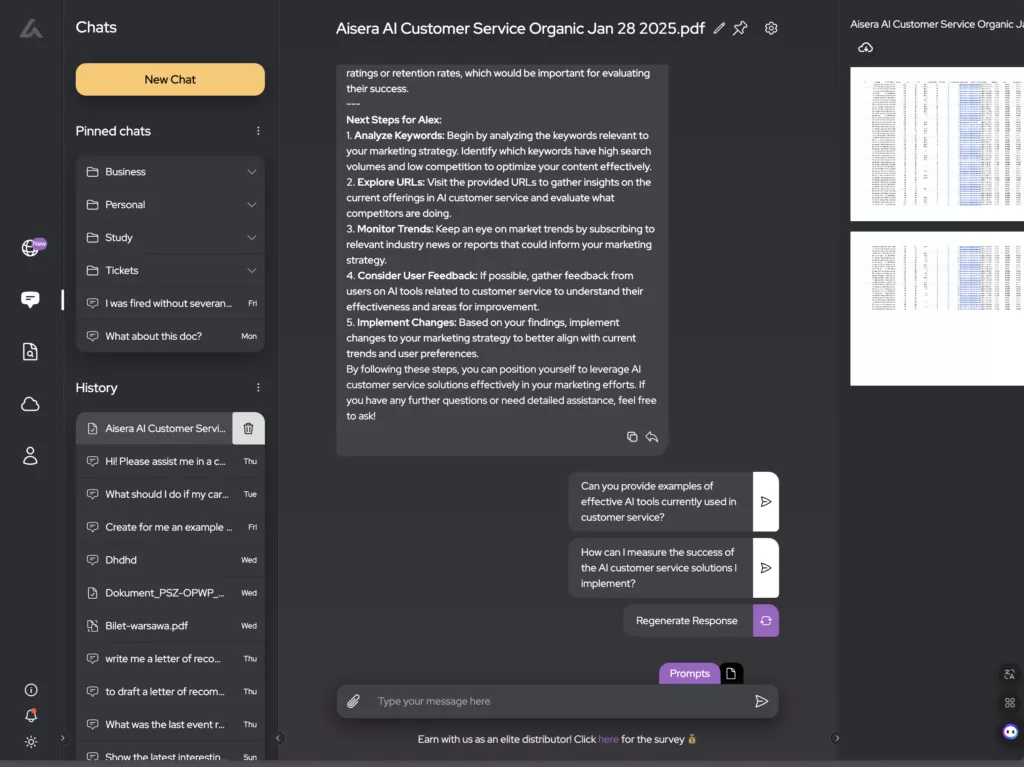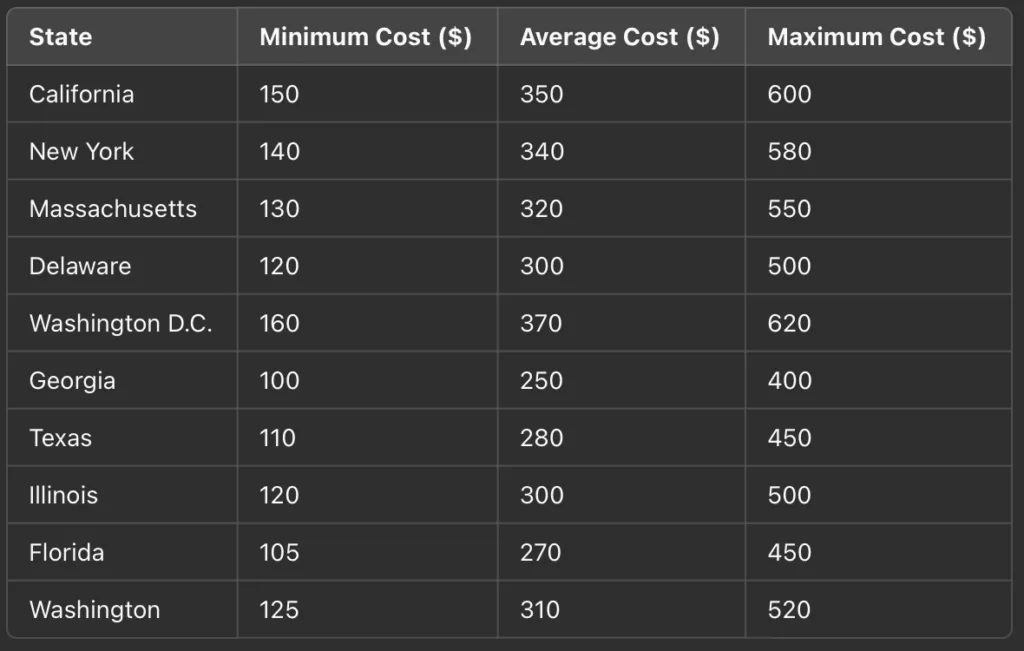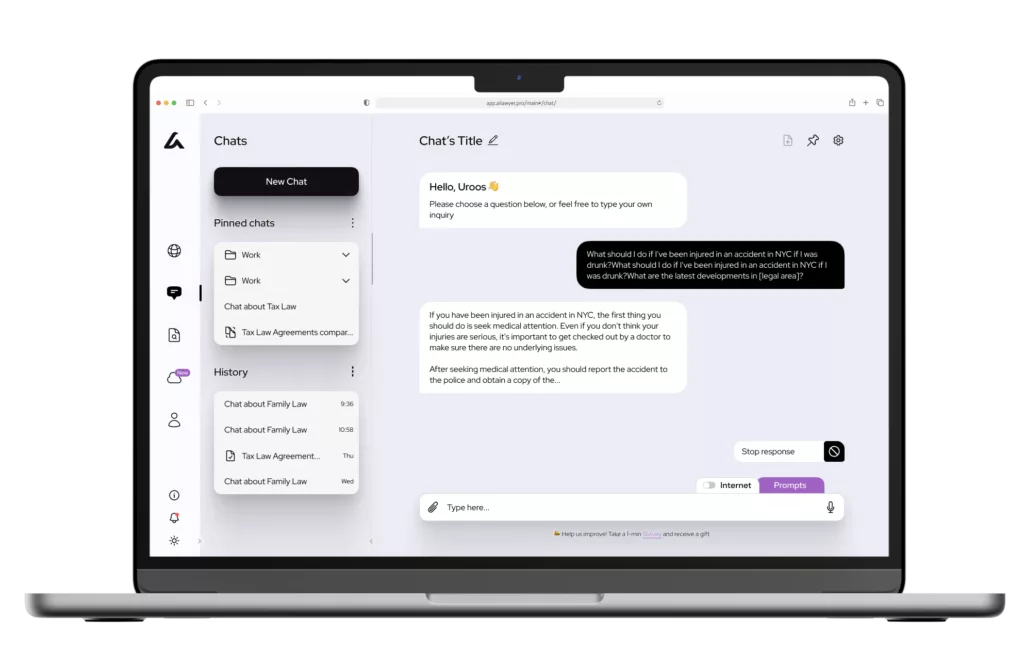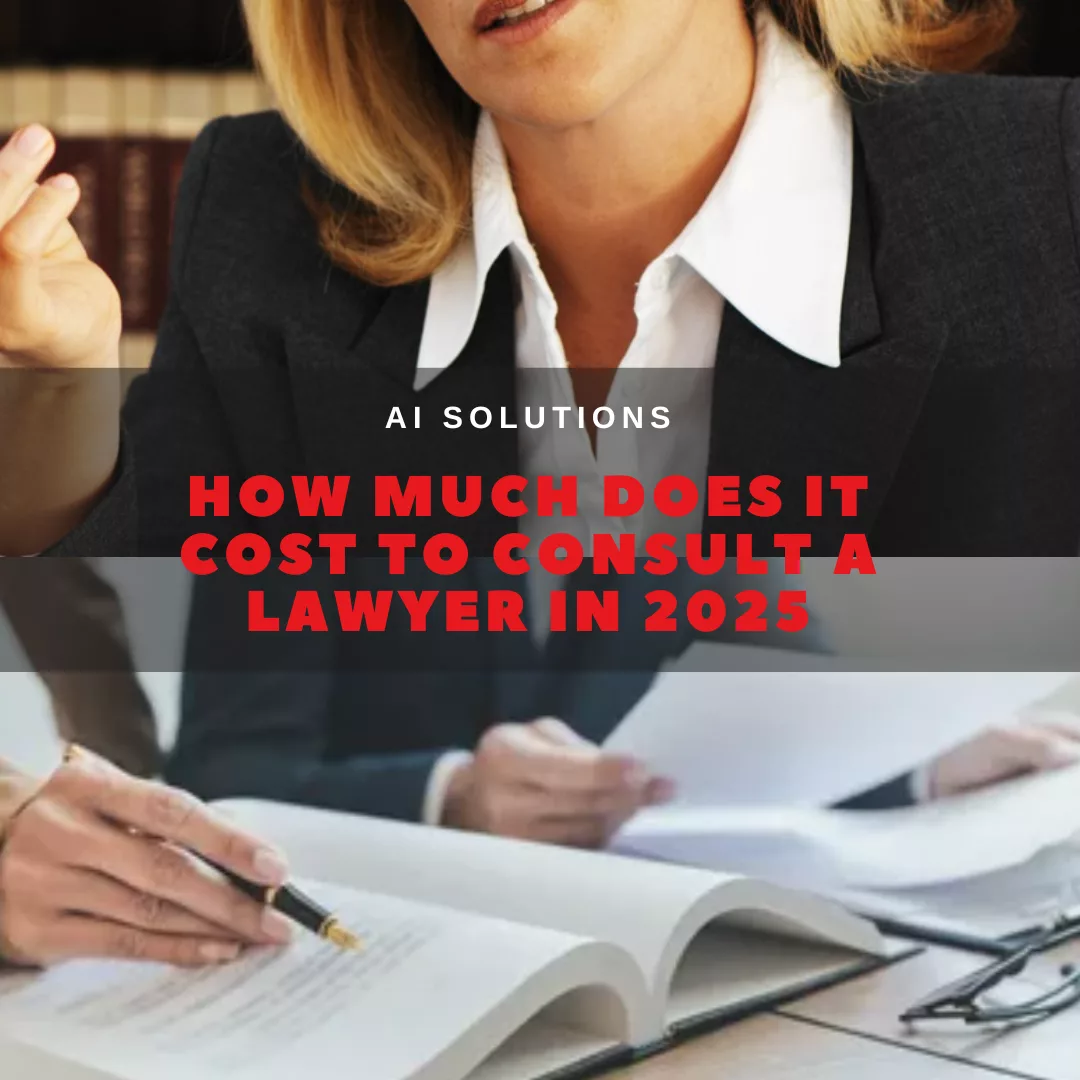1. Introduction
Legal issues can arise at any point in life, whether for personal matters, business needs, or unexpected disputes. When facing legal challenges, hiring a lawyer is often necessary, but many individuals hesitate due to uncertainty about the costs involved. Legal fees can vary widely based on several factors, including the lawyer’s experience, specialization, and geographic location.
Awareness of legal service costs in the U.S. has driven young companies to leverage AI in developing the ideal legal assistant. For example, AI Lawyer boasts a robust training database and a comprehensive suite of tools designed to provide legal assistance and handle various legal documents efficiently.

Try Ask AI for free! AI Lawyer offers a free trial period, allowing you to test its capabilities and explore solutions to your legal issues.

Why Understanding Legal Fees is Important
Legal fees impact decision-making when hiring an attorney. Without a clear understanding of legal costs, individuals may either avoid seeking legal assistance due to perceived high costs or overpay without realizing available alternatives. By understanding the different pricing models and factors influencing costs, clients can make informed choices and plan their finances accordingly.
How Legal Costs Impact Decision-Making
Many people delay or avoid hiring a lawyer due to the fear of excessive legal bills. However, in some cases, not hiring an attorney can lead to even greater financial and legal consequences. For example, a poorly drafted contract or lack of legal representation in court can result in expensive mistakes. Knowing the different fee structures helps in negotiating reasonable terms and selecting an attorney who aligns with your budget and legal needs.
Overview of Key Questions Answered in This Article
This article provides a comprehensive breakdown of legal fees, including consultation costs, pricing models, and alternative payment options. We will explore:
- How much does a lawyer consultation cost, and what factors influence pricing?
- How are legal fees structured, and what are the differences between fixed fees, hourly rates, and retainer agreements?
- Are there alternative payment options such as contingency fees, payment plans, or legal aid programs?
- What additional expenses should you consider beyond the basic legal fees?
- How can you find a cost-effective lawyer without sacrificing quality?
To help you estimate potential costs, we provide a table with consultation fees across different U.S. states, along with expert insights on navigating the legal system efficiently. By the end of this article, you will have a clear understanding of how legal fees are structured and how to choose a lawyer that fits your budget and needs.
2. How Much Does a Lawyer Consultation Cost?
Definition & Purpose of a Consultation
A lawyer consultation is an initial meeting where an attorney assesses a client’s legal issue, provides preliminary advice, and discusses potential legal strategies. This session typically lasts between 30 minutes to an hour and allows the client to determine whether the lawyer is a good fit for their case. Some attorneys use consultations to gather necessary information, while others may offer actionable advice during the session.

During a consultation, common topics discussed may include:
Client responsibilities: The lawyer might explain any documentation or information needed from the client to proceed.
Case assessment: The lawyer will review the details of the client’s case to determine its viability and potential legal avenues.
Legal options: The attorney may outline different strategies and the possible outcomes of the case.
Fees and payment structure: The client can ask about the lawyer’s pricing model, including retainer fees, hourly rates, or contingency arrangements.
Estimated timeline: The attorney may provide an overview of how long the legal process could take.
Potential risks and challenges: The lawyer will highlight any legal hurdles or obstacles that could arise.
Average Costs Across the U.S.
Lawyer consultation fees vary significantly by state, specialization, and experience level. Below is an estimate of consultation fees in different states:

Note: These figures are estimates, and actual fees may vary based on the complexity of the case and lawyer availability.
According to the U.S. Bureau of Labor Statistics, the median annual salary for lawyers in the U.S. is around $122,960 per year. This varies depending on specialization, location, and experience level.
Median Annual Wage for Lawyers. According to the U.S. Bureau of Labor Statistics, the median annual wage for lawyers was $145,760 in May 2023.
Average Lawyer Hourly Rates by State. In 2023, the median hourly rate for lawyers was $249, with the average being $257. Rates varied by state, ranging from $162 to $392. Washington D.C. had the highest average hourly rate, followed by New York.
Factors Affecting Consultation Costs
Several factors contribute to the variation in lawyer consultation fees:
- Lawyer’s Experience & Specialization: More experienced attorneys with specialized expertise (e.g., corporate law, immigration law, intellectual property) often charge higher fees.
- Geographic Location: Lawyers practicing in major metropolitan areas, such as New York City or San Francisco, tend to charge more than those in smaller towns or rural areas.
- Type of Law: Consultations for criminal defense, corporate law, and intellectual property tend to be more expensive compared to family law or estate planning.
- Free Consultations: Some law firms offer free initial consultations, especially in personal injury, bankruptcy, or immigration law, as they often work on a contingency basis.
By understanding these cost factors, clients can better prepare financially and choose a lawyer that fits their budget.
3. How Are Legal Fees Calculated?

Fixed Fees vs. Hourly Rates
Lawyers typically charge clients based on either a fixed fee or an hourly rate.
- Fixed Fees: Some legal services, such as drafting contracts, wills, or handling straightforward legal matters, may come at a predetermined flat rate. These fees range from $500 to $5,000, depending on the complexity of the service.
- Hourly Rates: Many attorneys charge by the hour, with rates ranging from $200 to $1,000 per hour. The exact price depends on the lawyer’s experience and location. Highly specialized attorneys in large metropolitan areas tend to charge on the higher end of this range.
Retainer Fees Explained
A retainer fee is an upfront payment that secures a lawyer’s services. This fee is typically placed in a trust account and deducted as the lawyer bills hours. Retainer amounts vary significantly but often range from $2,000 to $10,000, depending on the case and lawyer.
Case Studies: Common Legal Fee Structures
- Divorce proceedings: Fixed fee of $3,000 to $7,000, or hourly rate of $250 to $500 per hour.
- Business contract review: Fixed fee of $500 to $2,500.
- Criminal defense: Retainer of $5,000 to $15,000, with hourly rates applying thereafter.
By understanding these fee structures, clients can make more informed choices about legal representation.
4. Alternative Payment Methods: Are There Flexible Options?
Contingency Fees
Some lawyers work on a contingency fee basis, meaning they only get paid if they win the case. This model is common in personal injury and class-action lawsuits, where attorneys take 25% to 40% of the settlement or award.
Payment Plans
Many law firms offer payment plans, allowing clients to pay legal fees over time rather than upfront. Payment structures vary, but common models include:
- Monthly installments over a fixed period.
- Low-interest or interest-free options for qualified clients.
- Partial retainer payments followed by scheduled payments.
Legal Aid & Pro Bono Services
For individuals with financial constraints, legal aid organizations provide low-cost or free legal services based on income eligibility. Some attorneys also take pro bono cases, particularly for marginalized groups or public interest issues.
By exploring these alternative payment methods, clients can access legal services even if they lack the immediate funds to pay traditional fees.
5. Hidden Costs & Additional Expenses to Consider
Court Filing Fees
Court-related fees vary depending on the type of case and jurisdiction. These fees can range from $50 to $500 for filing documents such as lawsuits, petitions, or motions. Some courts offer fee waivers for low-income individuals.
Average Lawyer Consultation Fees. Consultation fees can vary widely based on the attorney’s experience, expertise, and location. Generally, lawyers charge an hourly rate for their consultation services, with these rates ranging from $150 to $1,000 or more per hour.
Expert Witness Fees
In complex cases, lawyers may require expert witnesses to provide specialized testimony. These professionals charge anywhere from $200 to $1,000 per hour, significantly increasing the overall legal costs.
Administrative Costs
Beyond lawyer fees, clients may incur administrative expenses such as:
- Copying and printing documents
- Legal research costs
- Courier and postage fees
- Travel expenses for court appearances
Miscellaneous Fees
Additional legal costs may arise depending on the case, including:
- Mediation or arbitration fees
- Late payment penalties for missed legal payments
- Additional consultation fees if the case requires more lawyer involvement
Being aware of these hidden costs allows clients to budget effectively and avoid unexpected financial burdens.
6. How to Choose a Lawyer Within Your Budget

Researching Cost-Effective Lawyers
- Comparing Firms and Independent Attorneys: Large law firms often charge more due to their reputation and resources, whereas independent attorneys may offer more flexible pricing.
- Checking Reviews and Testimonials: Online reviews and client testimonials can provide insight into an attorney’s professionalism and success rate.
- Asking About Pricing Structures Upfront: Before committing, ask for a breakdown of costs, including consultation fees, hourly rates, and potential additional expenses.
Negotiating Fees
Many lawyers are open to discussing their fees, especially for long-term cases. Clients can:
- Request a Payment Plan: Some attorneys allow structured payments over time.
- Ask for a Discount: Lawyers may offer lower rates for straightforward cases or lower-income clients.
- Consider Flat Fees Instead of Hourly Rates: This can help clients avoid unexpected costs.
Free Initial Consultations: When They Are Worth It
Some attorneys offer free initial consultations, which are beneficial for:
- Getting a general understanding of the case.
- Comparing different attorneys before hiring one.
- Assessing whether the lawyer’s experience aligns with the client’s needs.
7. FAQ: Common Questions About Legal Fees

What is the difference between a lawyer and an attorney?
The terms “lawyer” and “attorney” are often used interchangeably, but there is a subtle difference. A lawyer is anyone who has completed law school, while an attorney is a lawyer who has passed the bar exam and is licensed to practice law.
How much does a lawyer make a year?
Lawyer salaries vary depending on experience, specialization, and location. According to the U.S. Bureau of Labor Statistics, the median annual wage for lawyers in the United States is around $127,990.
Do you need a lawyer to get a power of attorney?
No, you do not always need a lawyer to obtain a power of attorney. However, consulting an attorney ensures that the document is legally binding and properly drafted for your specific needs.
Can you negotiate legal fees?
Yes, many lawyers are open to fee negotiations, especially for long-term cases or predictable legal work. Clients can ask about payment plans, reduced rates for straightforward matters, or flat fee agreements.
How do contingency fees work?
A contingency fee arrangement means that the lawyer gets paid only if they win the case. Typically, the attorney receives a percentage of the final settlement, usually ranging from 25% to 40%.
Are free consultations really free?
Many lawyers offer free initial consultations, but it’s important to clarify the scope. Some firms provide a limited-time session for general advice, while others may charge if detailed legal analysis is required.
How long does it take to resolve a legal case?
The duration of a legal case varies based on complexity, court schedules, and negotiation processes. Simple cases may be resolved in weeks, while complex litigation can take months or even years.
What happens if I can’t afford a lawyer?
Clients who cannot afford a lawyer may qualify for legal aid services, pro bono representation, or public defenders in criminal cases. Some attorneys also offer sliding scale fees based on income. Or try AI Lawyer
Do lawyers offer payment plans?
Yes, some lawyers allow clients to pay in installments rather than upfront. Payment plans vary by law firm and case type, so it’s best to discuss terms during an initial consultation.
What type of lawyer do I need for my case?
The right lawyer depends on the legal issue. For example:
- Family Lawyer: Handles divorce, child custody, and adoption cases.
- Criminal Defense Attorney: Represents individuals accused of crimes.
- Estate Planning Lawyer: Helps with wills, trusts, and probate matters.
- Personal Injury Lawyer: Assists in cases involving accidents and injuries.
- Employment Lawyer: Addresses workplace disputes and wrongful termination claims.
8. Tips for Finding Legal Assistance
- Check Local Legal Aid Organizations: Many states have legal aid groups that offer free or low-cost legal help.
- Look for Law School Clinics: Some law schools provide free legal services through supervised student programs.
- Utilize Online Legal Services: Platforms like AI Lawyer, Avvo, LegalZoom, and Rocket Lawyer offer affordable legal consultations.
- Ask for Referrals: Recommendations from friends, family, or professional networks can help you find reputable attorneys.
9. Verified Sources on Legal Fees and Attorney Costs
Average Lawyer Consultation Fees
According to the American Bar Association (ABA), the most common billing method is an hourly rate, which varies based on experience and location. More experienced lawyers tend to charge higher fees.
Factors Influencing Legal Fees
FindLaw states that attorney fees are determined by multiple factors, including the complexity of the case, the lawyer’s experience, and business overhead costs. Clients should discuss fees upfront to avoid unexpected expenses.
Contingency Fee Structures
FindLaw explains that personal injury lawyers typically work on a contingency fee basis, taking 30-40% of the final settlement. If the case is lost, clients do not owe attorney fees.
Hourly Rates & Retainer Fees
According to LegalZoom, attorneys often require upfront retainers ranging from $2,000 to $10,000, with hourly rates between $150 and $1,000 per hour. Some offer flat-fee services for simple legal matters.
Alternative Pricing Models
Lawyerist outlines alternative law firm pricing models, including flat-fee, contingency plans, subscription plans, and unbundled services, which can provide clients with more predictable legal costs.
10. Try AI Lawyer for Affordable Legal Assistance

For those looking for a cost-effective and efficient way to get legal advice, AI Lawyer provides automated legal assistance for common legal issues. AI-driven tools can help with:
- Drafting legal documents
- Answering legal questions
- Providing step-by-step guidance on legal processes
Using AI-powered legal tools can be a great first step before consulting a traditional attorney.
11. Cost Estimates for Different Types of Lawyers

How much does a divorce lawyer cost?
The cost of a divorce lawyer depends on complexity and location. On average, a divorce attorney charges between $250 to $450 per hour, and a full divorce case may cost $7,000 to $15,000.
How much does a disability lawyer cost?
Disability lawyers often work on contingency, taking 25% of past-due benefits awarded in Social Security Disability cases.
How much does a probate lawyer cost?
Probate lawyers charge either hourly rates ($150 to $400 per hour) or a percentage of the estate value, typically 2-5%.
How much does a tenant lawyer cost?
Tenant lawyers generally charge $200 to $500 per hour, though some offer flat fees for specific services like lease reviews.
How much does an immigration lawyer cost?
The cost of an immigration lawyer varies based on case complexity. Consultations range from $100 to $300, while full representation for cases like green card applications may cost $2,000 to $10,000.
How much does a consumer protection lawyer cost?
Consumer protection attorneys charge $150 to $500 per hour, depending on case complexity. Some work on contingency for class action lawsuits.
How much does a car accident lawyer cost?
Car accident lawyers typically work on contingency, taking 25% to 40% of the settlement amount.
By researching costs and understanding different pricing models, individuals can make informed decisions when seeking legal representation.
12. Conclusion
Summary of Key Points
- Legal fees vary widely based on location, experience, and case complexity.
- Understanding consultation costs and fee structures can help clients make informed decisions.
- Alternative payment methods such as contingency fees and legal aid can provide financial relief.
- Additional expenses like court filing fees and expert witness costs should be considered.
- Researching and negotiating fees can help clients find an affordable yet effective lawyer.
Final Tips on Managing Legal Costs Effectively
- Compare multiple lawyers and fee structures.
- Be upfront about your budget and ask about flexible payment plans.
- Take advantage of free consultations to evaluate options before making a commitment.
Encouragement to Research Legal Fees Before Committing
Legal representation is a significant investment, and understanding costs beforehand can prevent financial strain. By researching, comparing options, and negotiating fees, clients can secure legal help without overextending their finances.
